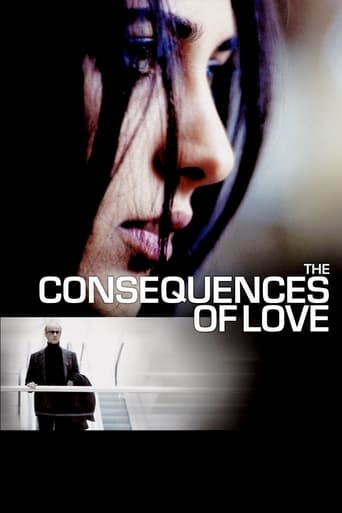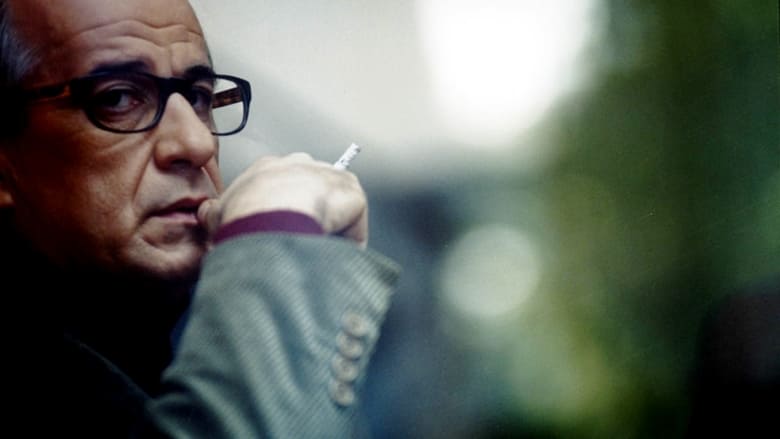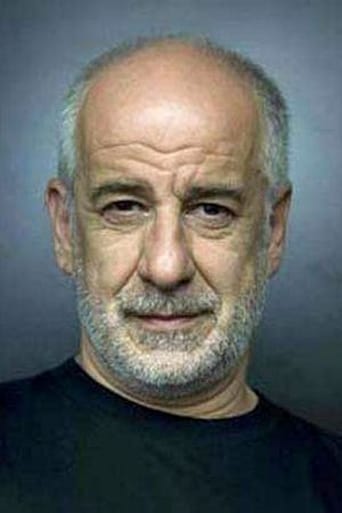

The Consequences of Love (2004)
Lugano, Switzerland. Titta Di Girolamo is a discreet and sullen man who has been living for almost a decade in a modest hotel room, a prisoner of an atrocious routine, apparently without purpose. His past is a mystery, nobody knows what he does for a living, he answers indiscreet questions evasively. What secrets does this enigmatic man hide?
Watch Trailer
Cast
Reviews
To me, this movie is perfection.
It really made me laugh, but for some moments I was tearing up because I could relate so much.
While it doesn't offer any answers, it both thrills and makes you think.
It's simply great fun, a winsome film and an occasionally over-the-top luxury fantasy that never flags.
Directed by Paolo Sorrentino (This Must Be the Place, The Great Beauty), this Italian film appeared in the pages of the 1001 Movies You Must See Before You Die book, I was hoping it would be an entry I'd agree with. Basically Titta di Girolamo (Toni Servillo) appears to live a lonely ordinary and tedious life not working in a hotel in Lugano, Switzerland, his only regular habits are smoking cigarettes and hanging around in a bar, he seems to be waiting for a secret to be revealed. In fact Titta is a courier for the mafia, and his life is programmed by work commitments and drug addiction, but these facets are meticulously managed he seems to ignore everyone and has hardly any emotions. One day Titta meets beautiful young and stylish hotel waitress and barmaid Sofia (Olivia Magnani), his habits will be completely altered as he spends time with her and develops feelings, but also there is a tragic and unpredictable conclusion. Also starring Adriano Giannini as Valerio, Angela Goodwin as Isabella, Raffaele Pisu as Carlo, Vincenzo Vitagliano as Pippo D'Antò, Vittorio Di Prima as Nitto Lo Riccio, Giselda Volodi as Waitress, Giovanni Vettorazzo as Letizia, Ana Valeria Dini as Reader Lettrice and Gianna Paola Scaffidi as Giulia. To be honest, there is not much of a story going on throughout, it is just a particular character changing his routine and breaking his own rules, but there are some interesting moments, so it's not a bad crime drama. Worth watching, in my opinion!
I was fortunate enough to see all of Sorrentino's work recently at this year's Italian Film Festival here in Hollywood and by comparison I can report that this movie is one of his best. To be sure - all the usual quirky idiosyncrasies of his style are represented: The dialogue not necessarily representing the individual character's intelligence but rather his state of mind, the quick, often fleeting hints at things happening, the sometimes inconsequential progression of plot which only makes partial sense once you've seen the whole time line, etc. This time the story lends itself nicely to all of Sorrentino's traits and save for the ending which once again seems somewhat stilted, his tale is a piece of work not to be missed. Check it out!
A stylish, touching Italian film. Toni Servillo's ascetic, crisply presented hotel-hermit Girolamo barely speaks and looks thoroughly bored. Not promising. However, we are engaged with a double hit of Girolamo's mysteriousness and the peripheral characters that he can't avoid in and around the hotel. Not least of these is the barmaid, the dark and irresistibly fragrant Olivia Magnani. She reaches out to him - the rest of the film are the consequences of his piqued humanity.I liked the editing, the use of a broad and varied soundtrack and a fresh, non-judgemental attitude to some familiar set pieces - murder, drug use, lust. There's no specifically existential narrative. It's equally cool and noble but no issue is made of any of these facets. Rather it's a straightforwardly told story in which all these themes are interdependent on one another. 6/10
I saw this interesting film back to back with the Chinese/French film "2046" at the recent Dubai Film festival. Both were intelligent works made the same year (2004/2005). Both had the main characters living in a "hotel". In both films, the hotel is more a metaphor of exile than a location. Both dealt with love between a man and a woman. Both had wonderful music and riveting performances. What a coincidence and yet how the two films differ in treatment of the subject! Somewhere at the beginning of the film, a man walking on a pavement turns to look at a woman and in doing so hits a lamp post. The audience erupts into a volcano of laughter innocently. But isn't that brief shot the synopsis of the film, that entertains you for 2 hours? While the film is a wonderful blend of black comedy (e.g., using a stethoscope to listen to a neighbor's conversation in the adjoining hotel room), the film builds on what Buster Keaton and Jacques Tati had introduced to cinema earlier--stoic faces that leads to comedy quite in contrast to the equally intelligent world of Robin Williams or the heartwarming Danny Kaye. A sudden frenzy of activity transforms an otherwise stoic character while moving money from the hotel to the bank is reminiscent of Tati's works.But the film is not mere comedy. The anti-automation statement (cash counting and the reaction of the bank staff to the statements relating to it, the dummy that acts as an ineffectual warning to the speeding lady, the reference to "Moulimix" as the fictitious "company" he works for, etc.) are several cues that the director is offering a loaded comedy to the viewer. Laugh, yes, but reflect on it and enjoy further..The movie's strength lies in is brief, staccato script (by director Paul Sorrentino) that offers comedy that is mixed with philosophy ("Truth is boring," "Dad is dead, but nobody told him," "Bad luck does not exist--it is the invention of the losers and the poor". Then the director goes on to provide you with a fascinating lecture from the main character on insomniacs. You will not sleep through this lecture.Sorrentino provides entertainment pegged to the subject the Italians know best--the Mafia. It is an existential mafia film.There is a loaded philosophical sequence where a young girl, sitting opposite the lead character Titta Di Girolamo, reads aloud a passage from a book: "Whatever he wants can happen. What a fine mess. That is the advantage of using memories to excite oneself. You can own memories, you can buy even more beautiful ones. But life is more complicated, human life especially so, a frightening, desperate adventure. Compared to this life of formal perfectionism, cocaine is nothing but a stationmaster's pastime. Let us return to Sophie.. We become poetic as we admire her being, beautiful and reckless, the rhythm of her life flowed from different springs than ours. Ours can only creep along, envious. This force of happiness both exciting and sweet, that animated her, disturbed us. It unsettled us in an enchanting way, but it unsettled us nevertheless. That's the word." The reaction of Titta to the passage is interesting. Titta is himself a cocaine addict. Titta looks at the barmaid of the hotel-his own "formal perfectionism." The following sequence is of Titta calling his own wife and daughter on the phone--a conversation filled more with silence than words. They, too, are Titta's "memories." The final sequence of the film is of Tittas' best friend Dino Guiffre working alone repairing a fault on an electricity pylon in biting wind in a snowy landscape--recalling his own best friend Titta. This is a film about friendship that transcends the mafia.Since "Truth is boring", the director provides a dessert as part of the fine meal of superb acting (Toni Servillo), good music, clever camera-work (Luca Bigazzi), a beautiful, enigmatic actress (Magnani, grand-daughter of the great, immortal beauty Anna Magnani) and powerful script. The dessert is for the viewer to figure out the truthful feelings of Titta, towards his family members, towards his hotel guests, towards the bar girl, towards the mafia, towards the bankers, towards the hotel owner, and towards his best friend Dino. (Assuming that the viewer accepts the eventuality of how Titta recovered his suitcase from the goons, how does he get inside his car and get it covered with its synthetic cover while he is still inside it?) Perhaps it is Sorrentino's admitted love for the literary works of Louis- Ferdinand Céline that has sculpted the character of Titta. The film's end will remain an enigmatic one for a reflective viewer.


